Financial Wellness: Getting Started
Last Updated
March 23, 2023
Written By
Nick Hinks
The current state of the US economy has been causing stress levels to spike in 2023. With rising national debt and interest rates, significant inflation, a housing market crisis, and threat of recession, it’s no wonder! While these things are ultimately out of our control, it’s important to focus on what we can control. There are plenty of resources, tools, and strategies that you can utilize in your everyday life to help you get your finances back on track, so you have one less thing to keep you up at night!
As a result of our current financial climate, 66% of Americans are doubtful that their financial situations will improve in 2023. Some of the top financial goals right now in the United States include:
- Paying down personal debt
- Improving budgeting skills
- Saving for emergencies
This last point is especially important as high-interest rates are preventing individuals from making necessary purchases that end up saving them money in the long run. For example, a new car, home repairs, etc. Unfortunately, due to inflation, many individuals are relying on credit to pay for these purchases when they do need to make them.

Create a Plan
Shop around your local credit unions to see who has the best deposit and loan rates to make sure you’re getting the most bang for your buck. Refinancing your high-interest loans could save you money long-term and lower your monthly payment. You should also consider transferring your credit card balance to a card with a lower interest rate. This will help you pay down your balance faster and save you money that would otherwise continue going towards the interest. When you seek out loans, it’s important to do your research to find out who is offering the best rate. Not only can these steps reduce the amount of financial stress you experience month to month, but it can also boost your credit score. For more on credit scores, click here.
Start Saving Small
Start setting aside a small amount of money each week for emergency savings – remember, anything is better than nothing! To make this easier on yourself, create a separate savings account (not a checking!) that is strictly for emergencies. The more accessible your funds are, the harder it is to save. To make this easier on yourself, consider automating your savings. Set up an automatic reoccurring transfer to your savings account so you can start saving without even thinking about it! You could also try a more old-school method. Using cash may not be as convenient as pulling out your card, but it can help. Save your change in a jar and deposit it to your savings later. Some individuals even find that they often spend less recreationally when they use cash. For some helpful spending and saving tips, check out our latest blog post – Financial Wellness: How to Manage Your Money.
Get Free Financial Guidance
If you find that you’re struggling to get your finances under control or you’re feeling overwhelmed by your financial situation, the best thing you can do is make an appointment with a local financial counselor. Financial counselors work with you to assess your finances, savings, spending habits, and more to help you make wise, educated money decisions that will help you meet your short and long-term financial goals.
Financial Counselors are certified by the National Credit Union Association and are individuals dedicated to helping you by providing financial guidance and learning with topics including budgeting, debt, and saving. While they often work with individuals who come from lower-income households, they are a valuable resource to anyone who is experiencing financial stress. They are a great resource to utilize when you have experienced a major life event, such as a divorce, loss of employment, or death of a loved one, just to name a few. Financial Counselors are different from Financial Advisors, whose focus is primarily on helping their clients achieve and manage wealth. If your financial situation requires a bit more than a financial counselor can provide, they can also refer you to credit counseling services near you.
At Family First, we have certified financial counselors available at every branch for your convenience. To make an appointment or talk to one of our counselors, fill out the contact form below and we will be in touch with you shortly!
Not sure if you would benefit from financial counseling? Click here to learn more!
Author

Nick has over 26 years of experience in the financial industry and became a qualified Financial Advisor in the UK back in 2001. Since moving to the United States in 2006, Nick has continued to grow in his career and in 2020 he joined Family First Credit Union as the East Rochester branch manager. Soon after, he earned his Financial Counselor Certification and has become a strong advocate for financial literacy within the Rochester community. By providing the proper tools, resources, and guidance, Nick hopes to empower his members to take control of their finances and obtain financial stability.



